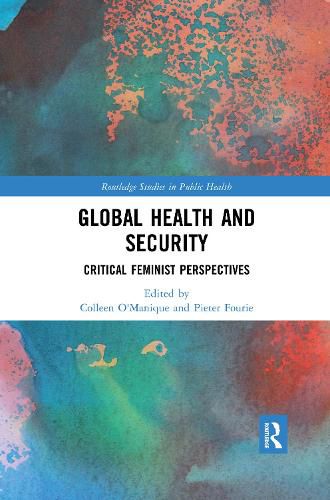Readings Newsletter
Become a Readings Member to make your shopping experience even easier.
Sign in or sign up for free!
You’re not far away from qualifying for FREE standard shipping within Australia
You’ve qualified for FREE standard shipping within Australia
The cart is loading…






The past decade has witnessed a significant increase in the construction of health as a security issue by national governments and multilateral organizations. This book provides the first critical, feminist analysis of the flesh-and-blood impacts of the securitization of health on different bodies, while broadening the scope of what we understand as global health security.
It looks at how feminist perspectives on health and security can lead to different questions about health and in/security, problematizing some of the ‘common sense’ assumptions that underlie much of the discourse in this area. It considers the norms, ideologies, and vested interests that frame specific ‘threats’ to health and policy responses, while exposing how the current governance of the global economy shapes new threats to health. Some chapters focus on conflict, war and complex emergencies, while others move from a ‘high political’ focus to the domain of subtler and often insidious structural violence, illuminating the impacts of hegemonic masculinities and the neoliberal governance of the global economy on health and life chances.
Highlighting the critical intersections across health, gender and security, this book is an important contribution to scholarship on health and security, global health, public health and gender studies.
$9.00 standard shipping within Australia
FREE standard shipping within Australia for orders over $100.00
Express & International shipping calculated at checkout
The past decade has witnessed a significant increase in the construction of health as a security issue by national governments and multilateral organizations. This book provides the first critical, feminist analysis of the flesh-and-blood impacts of the securitization of health on different bodies, while broadening the scope of what we understand as global health security.
It looks at how feminist perspectives on health and security can lead to different questions about health and in/security, problematizing some of the ‘common sense’ assumptions that underlie much of the discourse in this area. It considers the norms, ideologies, and vested interests that frame specific ‘threats’ to health and policy responses, while exposing how the current governance of the global economy shapes new threats to health. Some chapters focus on conflict, war and complex emergencies, while others move from a ‘high political’ focus to the domain of subtler and often insidious structural violence, illuminating the impacts of hegemonic masculinities and the neoliberal governance of the global economy on health and life chances.
Highlighting the critical intersections across health, gender and security, this book is an important contribution to scholarship on health and security, global health, public health and gender studies.